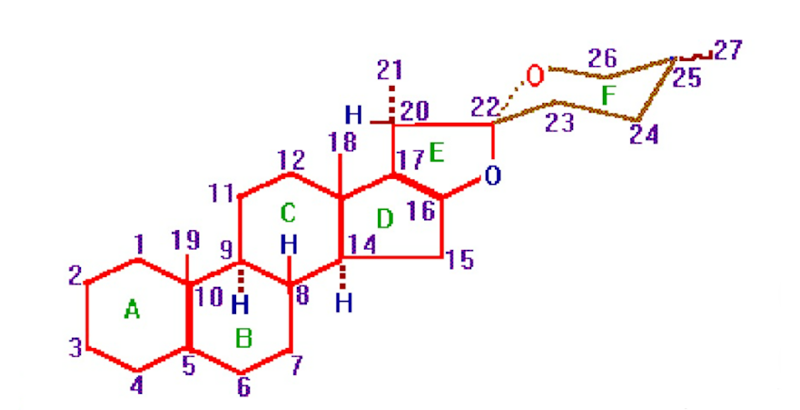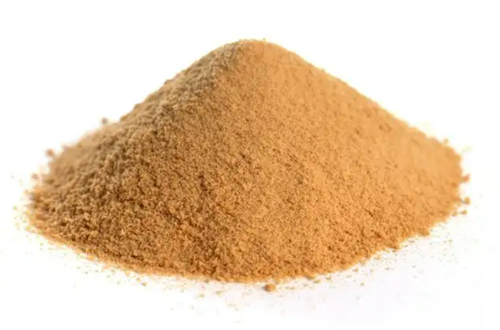Biological Activity of Plant Saponin Extracts
In the world of natural compounds, saponins have been a subject of fascination for researchers and scientists for their diverse biological activities. Saponin extracts, which can be found in various plants, possess unique properties that have sparked interest in multiple fields, including medicine, agriculture, and nutrition. This article aims to delve into the fascinating realm of saponin extracts, shedding light on their biological activity and the potential benefits they offer.
What are Saponin Extracts?
Saponins are a class of natural compounds widely distributed in the plant kingdom. They are glycosides, meaning they contain both a sugar component (glycone) and a non-sugar component (aglycone or genin). The unique chemical structure of saponins gives them their characteristic foaming properties, making them effective as natural detergents and surfactants.
Biological Activities of Saponin Extracts
Antimicrobial Properties
Many triterpenoid saponins and steroid saponins have been found to have both plant and human anti-pathogen effects, including bacteria, fungi, and viruses. It mainly has antifungal action, antiviral action and a small amount of antibacterial action. Studies have shown that saponin extracts can inhibit the growth and reproduction of harmful microorganisms, making them potentially valuable in combating infections and preserving food items.
The mechanism of the antifungal action of saponins is that the semi-permeability of fungal cell membrane is destroyed by the formation of a complex between saponins and steroids in the fungal serous membrane. At present, it is known that the triterpenoid saponins extracted from Asiaticum sinensis have the effect of anti-diarrhea bacteria.
Anti-Inflammatory Effects
Inflammation is a natural response of the body to injury or infection. However, excessive and prolonged inflammation can lead to various chronic diseases. Saponin extracts have exhibited anti-inflammatory properties by reducing the production of inflammatory mediators. This potential makes them a target for developing therapeutic agents for inflammatory disorders.
Antioxidant
Studies have shown that plant saponins extract can improve the activities of glutathione peroxidase and superoxidase, and have certain antioxidant capacity. Saponin extracts possess strong antioxidant properties that help neutralize harmful free radicals in the body. By doing so, they protect cells and tissues from oxidative damage, which is associated with aging and various diseases, including cancer and neurodegenerative conditions.
Cholesterol Regulation
Hyperlipidemia can cause atherosclerosis, which is the main cause of cardiovascular and cerebrovascular diseases. Some studies suggest that saponin extracts may play a role in reducing cholesterol levels in the bloodstream. By interfering with the absorption of cholesterol from the gut and increasing its excretion, saponins could have potential benefits for cardiovascular health.
Phytosaponins can regulate the metabolism of lipids, affect the synthesis, absorption and excretion of cholesterol, and inhibit the occurrence of lipid peroxidation, so as to control the rise of blood lipids and reduce the occurrence and development of cardiovascular diseases. The study found that ginseng stem/leaf saponin can enhance the PPAR mRNA level in mice with the fatty liver model, revealing that it reduces fat deposition by enhancing the expression of fat metabolity-related enzyme genes, and ultimately reduces the incidence of ankylosing spondylitis (AS).
Immunomodulatory Activity
The immune system has the functions of immune defense, immune surveillance, immune tolerance and immune regulation. It mainly acts on immune organs and immune cells, such as T cells involved in cellular immune function and B cells responsible for antibody production. Some components, such as saponins, can clinically treat some diseases with poor immune function.
Saponins can modulate the immune system by enhancing the activity of certain immune cells. This property may have implications in improving immune responses to infections and may be explored for potential immunotherapies. Natural plant saponins extract have the function of regulating the human immune system, such as ginsenosides. Ginsenoside rh2 can regulate and enhance the immunity of the body in various ways, and protect the immune system.
Anti-tumor Effect
Immunity is its own natural defense barrier, immune disorders, the loss of immune surveillance, can not clear mutated cells, is also one of the causes of the tumor. Under normal circumstances, the body’s cell proliferation and apoptosis are in a relatively balanced state, once this mechanism is destroyed, cell division will be out of control, infinite proliferation or apoptosis is blocked, resulting in tumor.
Saponins can inhibit the proliferation of tumor cells, induce the apoptosis of tumor cells and inhibit the metastasis of tumor cells, so as to achieve anti-tumor effect. Studies have shown that ginsenoside Rg3 can increase the activity of caspase-3 (cysteine protein) and induce apoptosis of cancer cells. It can secrete nitric oxide synthetase of macrophage RAW264.7 and then synthesize nitric oxide. The apoptosis pathway is activated by damaging mitochondria, thus inducing apoptosis of cells.
Applications of Saponin Extracts
Medicinal Uses
Traditional medicine systems across the globe have utilized saponin-rich plants for their healing properties. As modern research continues to unveil their potential, saponin extracts might find their way into pharmaceutical formulations for various health conditions.
Natural Pesticides and Herbicides
Due to their antimicrobial properties, saponin extracts can be used as environmentally friendly alternatives to synthetic pesticides and herbicides. They offer a sustainable solution for pest and weed control in agriculture.
Nutraceuticals and Functional Foods
Incorporating saponin extracts into functional foods and nutraceuticals can add health benefits to everyday diets. Their antioxidant and cholesterol-lowering effects make them appealing as natural food additives.
Cosmetic Industry
Saponin extracts are gaining attention in the cosmetic industry for their ability to cleanse and moisturize the skin gently. Their natural foaming properties make them an attractive ingredient in organic skincare products.
The biological activity of saponin extracts is a captivating area of research with tremendous potential across various industries. As science progresses, we are likely to witness more applications of these versatile compounds in medicine, agriculture, and beyond. With their antimicrobial, anti-inflammatory, and antioxidant properties, saponin extracts offer a promising avenue for the development of novel therapeutics and eco-friendly solutions.
So, if you’re intrigued by the wonders of saponin extracts and their potential benefits, keep an eye on the ever-evolving research in this exciting field.
References
https://www.mdpi.com/2223-7747/11/18/2355




